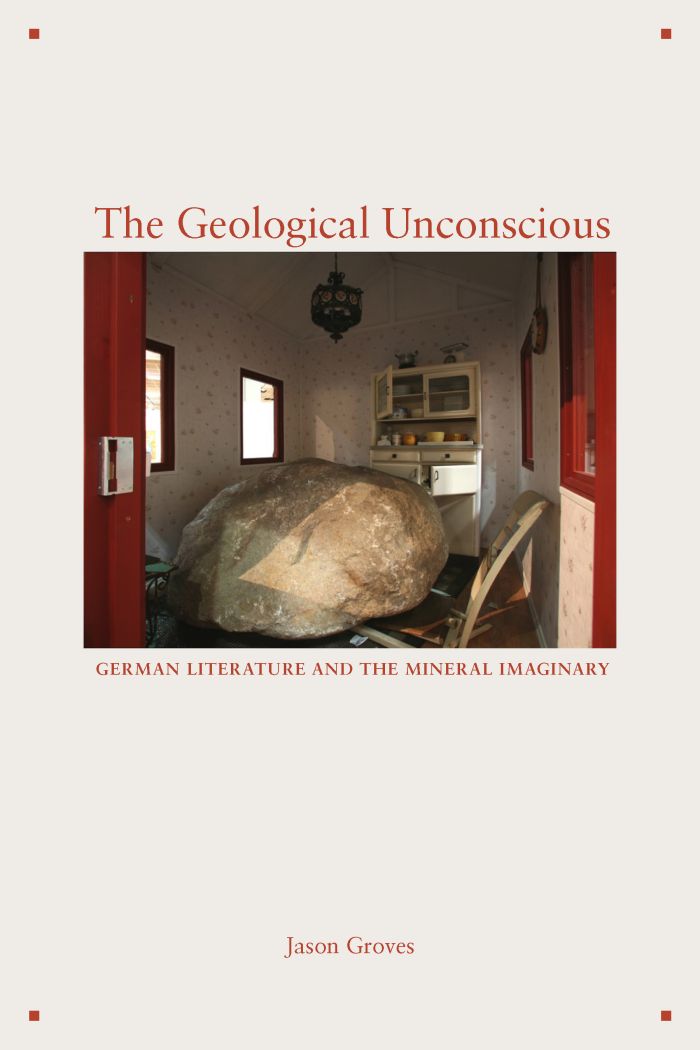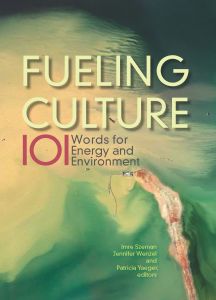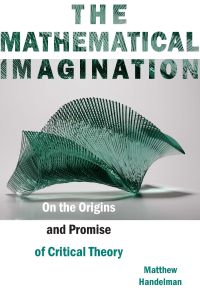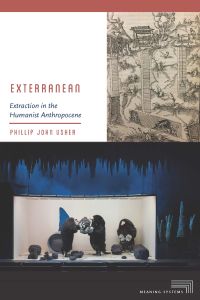The Geological Unconscious
German Literature and the Mineral Imaginary

This book can be opened with

Already in the nineteenth century, German-language writers were contending with the challenge of imagining and accounting for a planet whose volatility bore little resemblance to the images of the Earth then in circulation. The Geological Unconscious traces the withdrawal of the lithosphere as a reliable setting, unobtrusive backdrop, and stable point of reference for literature written well before the current climate breakdown.
Through a series of careful readings of romantic, realist, and modernist works by Tieck, Goethe, Stifter, Benjamin, and Brecht, Groves elaborates a geological unconscious—unthought and sometimes actively repressed geological knowledge—in European literature and environmental thought. This inhuman horizon of reading and interpretation offers a new literary history of the Anthropocene in a period before it was named.
These close readings show the entanglement of the human and the lithic in periods well before the geological turn of contemporary cultural studies. In those depictions of human-mineral encounters, the minerality of the human and the minerality of the imagination become apparent. In registering libidinal investments in the lithosphere that extend beyond Carboniferous deposits and beyond any carbon imaginary, The Geological Unconscious points toward alternative relations with, and less destructive mobilizations of, the geologic.
“The Geological Unconscious offers subtle close readings of several canonical texts that receive provocative illumination from ecocriticism. The book’s focus on the instability of ground is insightfully paired with a consideration of how already in the nineteenth century literary style and narrative register geological time and planetary wounding.”—Catriona MacLeod, University of Chicago
“An impressive and accomplished study that delves deep into the layers of German mineralogical imagination from Goethe to Benjamin. Stones may not be able to speak, but they have found their spokesman. A pleasure to read.”—Geoffrey Winthrop-Young, University of British Columbia
Groves’s ecocritical framework provides readers interested in environmental studies with a compelling new reason to engage with the German literary canon. Such readers will find in Groves a strong, nuanced voice with an impressive mastery of theoretical texts, from contemporary environmental thought ( Jane Bennett, Timothy Clark, Timothy Morton) to twentieth-century critical theory, deconstruction, and psychoanalysis. Literary scholars of all fields will appreciate his close attention to language, which extends to his own elegant, often playful prose and talent for storytelling.
—Modern Language Quarterly
Groves provides close readings of the texts, referring frequently to applicable theories and research... This reviewer is unaware of studies similar in scope.—J.K. Fugate, Choice Reviews
Groves's book will no doubt establish him as the scholarly expert on the nexus between geology and literature--within German studies and beyond... One hopes that the book's breadth and depth of analysis will serve as a model for many future studies within the environmental humanities investigating other aspects of the Anthropocene as already embedded in--but not yet excavated from--the sediment strata of cultural and literary history.—Monatshefte
Introduction | 1
1 Of Other Petrofictions: Reimagining the Mine in German Romanticism | 17
2 Goethe’s Erratics: Wandering in Deep Time | 36
3 Many Stranded Stones: Stifter’s Spectral Landscapes | 67
4 The Shock of the Earth: Benjamin’s Unarticulated Ground | 93
Epilogue: Dilapidated | 115
Acknowledgments | 139
Notes | 143
Bibliography | 157
Index | 171




